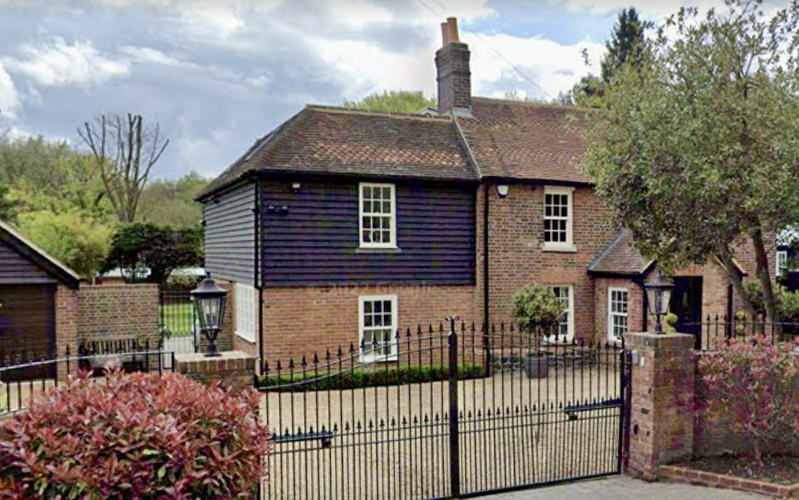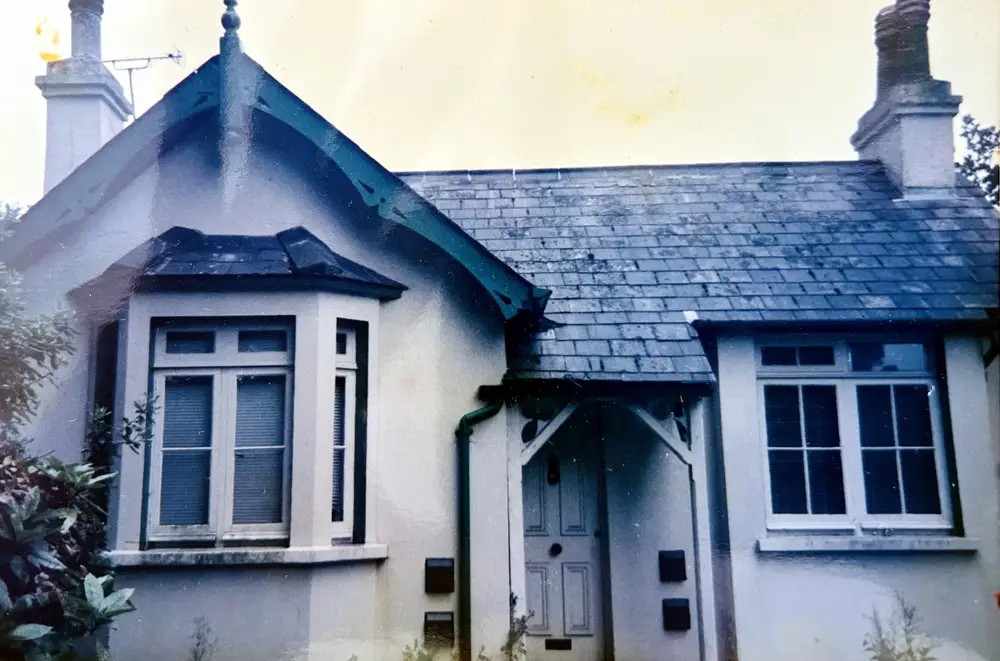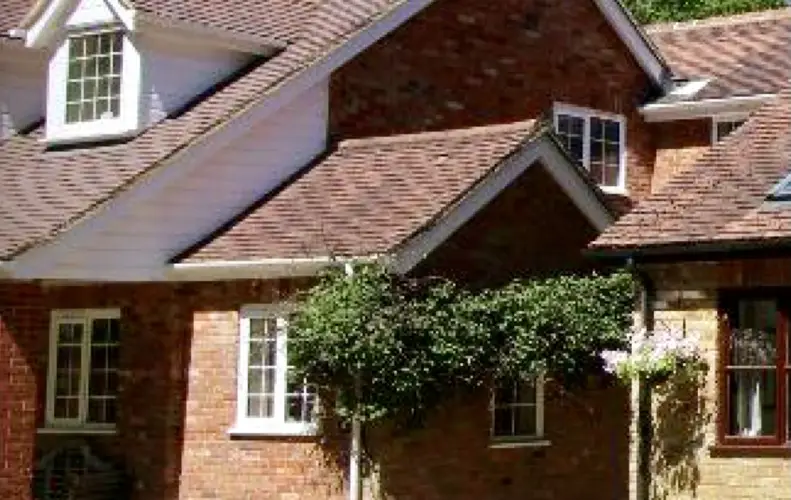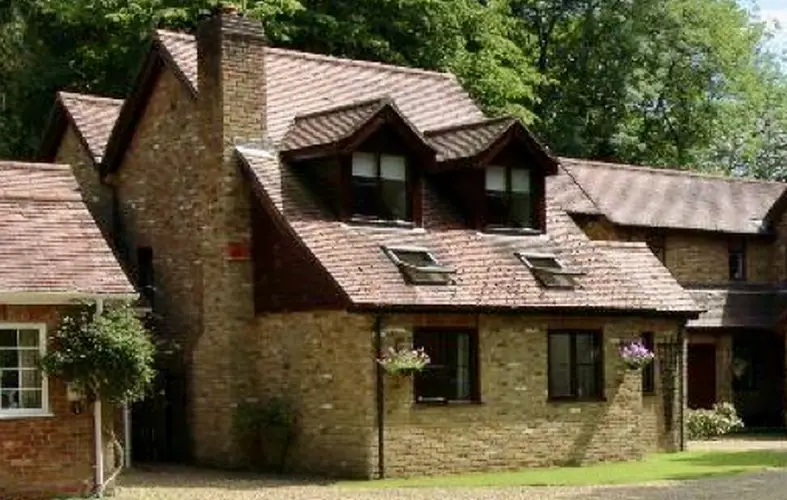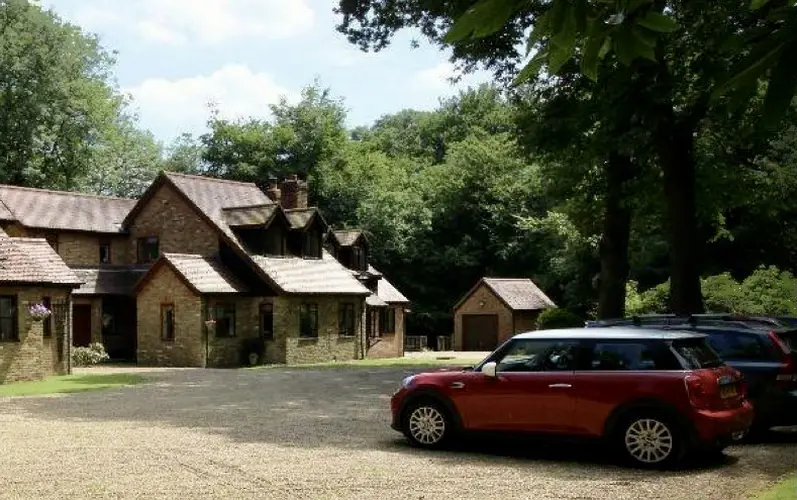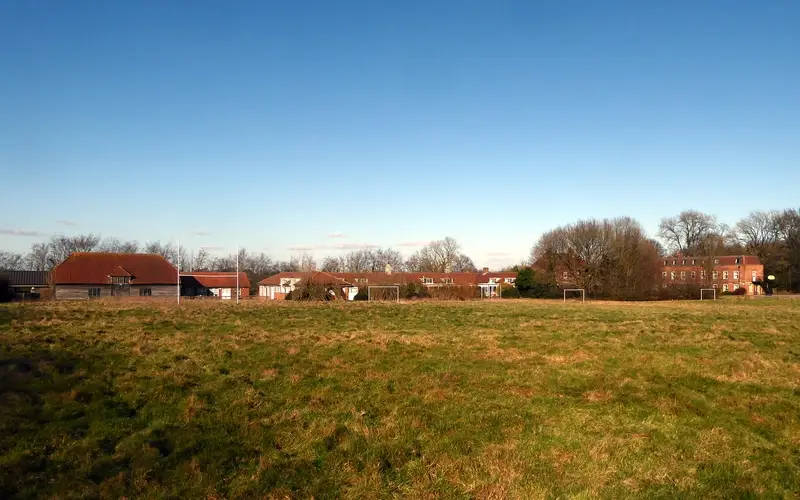Residential properties - Gravesend Road
This page lists the residential properties on the section of Gravesend Road along the boundary with Stansted from the Telephone Exchange to the Margaret McMillan Centre. Some of the properties are in the Parishes of Meopham, Vigo, and Trottiscliffe and have been included for completeness.
Please get in touch with the Society should you have further information on any of the properties listed or suggest any changes or additions.
The Grange (Tower Folly)
Previously named Tower Grange and then Tower Folly, the property was originally part of Millers Farm and was used for drying hops. It is one of the first oast houses to be converted to a home in 1903 and is thought to be unique with thirteen windows in the kiln roof. This property is in the Parish of Meopham.
Wentfield Lodge
The lodge was built in 1902 on land previously belonging to Wentfield. It was part of the Waterlow estate and passed to the Lance family in 1916 along with Wentfield. Many of its residents were workers associated with the Waterlows/Lances. It was sold on the open market in 1945. The property is in the Parish of Meopham.
Wentfield
This is a large detached house that was built between 1874 and 1877. It was extended by the owner John Drummond before being sold (along with Wentfield Lodge) to the Lance family in 1916. The Lance family were largely responsible for the introduction of the Saluki breed of dog to the UK and had breeding kennels on the land. Brigadier Frederick Lance sold the properties in 1945 to Oliver Achurch and moved to nearby Wentshaw. Mr Achurch lived in the property until his death in 1986.
Vigo House
The Vigo Inn (1471-2014) was separated into two dwellings in 2018. This part of the building was converted into a three-bedroomed property.
1 Central Lodge
The property is in the Parish of Trottiscliffe. Historically, there was one building here that had been part of the stables of Trosley Towers. Over the years it had been converted to three cottages which were later used by the Army (OCTU). Planning consent was granted in 1984 for the demolition of the cottages and the erection of four 3 bed houses. Previous planning applications for a block of flats and for terraced housing had been rejected.
2 Central Lodge
The property is in the Parish of Trottiscliffe. Historically, there was one building here that had been part of the stables of Trosley Towers. Over the years it had been converted to three cottages which were later used by the Army (OCTU). Planning consent was granted in 1984 for the demolition of the cottages and the erection of four 3 bed houses. Previous planning applications for a block of flats and for terraced housing had been rejected.
3 Central Lodge
The property is in the Parish of Trottiscliffe. Historically, there was one building here that had been part of the stables of Trosley Towers. Over the years it had been converted to three cottages which were later used by the Army (OCTU). Planning consent was granted in 1984 for the demolition of the cottages and the erection of four 3 bed houses. Previous planning applications for a block of flats and for terraced housing had been rejected.
4 Central Lodge
The property is in the Parish of Trottiscliffe. Historically, there was one building here that had been part of the stables of Trosley Towers. Over the years it had been converted to three cottages which were later used by the Army (OCTU). Planning consent was granted in 1984 for the demolition of the cottages and the erection of four 3 bed houses. Previous planning applications for a block of flats and for terraced housing had been rejected.
Fairacre
The bungalow was built in the 1930s by George Downs on a 1 acre vacant site purchased from Sir Edgar Waterlow. The site had previously been part of Manor Farm. George lived lived there with his wife Florence until 1947. It was originally called Cosy Lawne and changed to its current name in the early 1950s. The external facade was altered in 1980.
MacMillan House
Built in the mid-1930s, the building is named after Margaret McMillan who dedicated her life to the developmental needs and educational progress of kindergarten and primary-age children; she had a profound effect on England’s education system including the establishment of Margaret McMillan House. The property is in the Parish of Wrotham.





